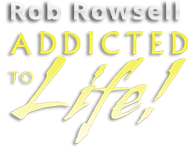Here is a clip from a recent Inner Circle Gathering Zoom call. Rob Rowsell answers a question from our friend Deon about the difference between interest only property loans and balloon loans. Watch and learn.
 Interest Only Property Loans – When And Where?
Interest Only Property Loans – When And Where?
Many interest only property loans are also balloon loans. For example, Rob cites a ten year interest only loan he currently holds. At the end of the ten year period, he can make a balloon payment to pay off the loan, or he can choose to refinance that loan. Deon next asked if that type of loan is Rob’s preferred arrangement.
Rob then gives his honest opinion that taking out an interest only loan. Such a loan is not usually the best move for multifamily property investments. Why not?
One benefit of having tenants in your properties is that their rent payments can go toward paying the principal of your loan. After ten years of collecting rent, you can considerably pay down the amount that you owe to the bank. This is a great method when you intend on holding onto the property for a long time. Conversely, if you want to sell the property in a short amount of time, an interest only option may be a good choice.
In summary, taking out interest only property loans should only be done in special circumstances. Building equity on the front end allows investors to potentially take out other, more manageable loans to add more revenue generating properties.
Join Our Multifamily Investing Community Today
Do you own your own multifamily rental properties? If not, do you plan to do so one day? Then you should consider joining our online financial group, the ATL Inner Circle Community! Each month, investing pro Rob Rowsell will teach you what you must do in order to build wealth in the real estate business. It’s not quite as easy as it looks! Property taxes, liens, and legal fees can all be hard to navigate, so having a successful guide in your corner like Rob is a must! Sign up today!

 Rob Explains How To Negotiate Cap Rates
Rob Explains How To Negotiate Cap Rates Commercial Real Estate Cap Rates And Property Values Explained
Commercial Real Estate Cap Rates And Property Values Explained Debt Service Coverage Ratio Formula
Debt Service Coverage Ratio Formula Pay For Apps? But There Are So Many Good Free Ones!
Pay For Apps? But There Are So Many Good Free Ones!